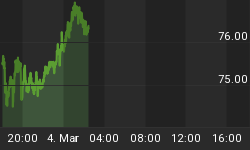Money is the economic good against which almost all other goods are traded, or, to put it more simply, money is the general medium of exchange within an economy. The corollary is that if something is the general medium of exchange within an economy, then that 'thing' is money.
Sound money will retain its value over time (it will be a good store of value), but something can be money and not be a good store of value*. Also, there are many things that are good stores of value but are not money. Again, the test of whether or not something is money involves asking the question: Is it the general medium of exchange? If the answer is yes, then it is money, if the answer is no, then it is not. For example, the US dollar passes this test (and is therefore "money") within the US and a few "dollarised" countries, but not elsewhere. For another example, the euro passes the "money" test throughout much of Europe, but not outside Europe. Where, then, does that leave gold, an economic good that was money for thousands of years?
Unfortunately, gold no longer passes the "money" test in any of today's major economies. We say "unfortunately" because if governments had not forcibly removed gold from its monetary role, often using the excuse that a more flexible type of money was needed to prevent financial crises and economic downturns, debt levels could never have reached the unmanageable proportions of today and the future would probably look much brighter.
Strangely, stating the FACT that gold is no longer money is viewed as heresy by some gold bulls. We aren't sure why, because recognising that gold doesn't perform the monetary role at this time doesn't devalue the metal in any way. As noted above, we wouldn't be in this economic mess if the general medium of exchange were gold or gold-like. Perhaps these gold bulls are confusing what should be with what is.
In an effort to explain how gold could still be money even though it is no longer the general medium of exchange, some people have redefined the terms "money" and "currency" in an imaginative way. Money, they say, is an abstract concept, whereas currency is what generally gets exchanged when things are bought and sold. Using these definitions it can be argued that gold is still money even though it is no longer widely used as a currency.
People are obviously free to use whatever definitions they believe make the most sense, but in this case changes are being made to well-established, precise and useful definitions solely for the purpose of avoiding a distasteful conclusion. It is better, we think, to face reality.
The reality is that nowadays gold is sometimes used as a currency, meaning that there are certain situations where gold is used to purchase things, but gold is not the currency in general use throughout the economy. In other words, gold is not money, but it is occasionally used as a currency.
Looking ahead, is it possible that gold will, again, be money?
The answer is yes. Gold is actually better suited to being money today than it ever has been in the past, thanks to technology that allows gold ownership to simply and instantly be transferred without the need to physically move bullion. Almost all the monetary gold could remain locked in vaults, with ownership to a quantity of gold -- anywhere from a tiny fraction of a gram to many kilograms, depending on what is being purchased -- being effected electronically.
As an aside, we are discussing the possibility of a return to using gold as money as opposed to a return to some form of gold standard where dollars, euros, etc. are money backed by gold. A gold standard or any other monetary standard managed by government will always be far from ideal because governments invariably find excuses to change the rules (an official convertibility rate of X$ per ounce of gold could, for instance, be changed to 2X$ per ounce of gold with the stroke of a politician's pen).
But although technology available today paves the way for the more efficient use of gold as money, it is extremely improbable that gold will ever again be money unless there is first a total economic collapse. This is because only a total economic collapse would be capable of bringing about the sort of political change that would make sound money feasible. The reality is that the current sizes of the government and the government's future obligations (social security, pensions, promised 'free' medical care, deposit insurance, the dole, payments to bondholders, etc.) are completely and blatantly incompatible with sound money. Implementing sound money and leaving everything else the same would be like trying to keep a Ponzi scheme going without sucking in new investment.
So, replacing money that the government can inflate at will with money that has rigid limitations on its supply could only occur in parallel with direct default on a massive scale and the shrinkage of the government to a small fraction of its current size. It is not realistic to expect that this will happen as long as it remains possible to 'kick the can down the road' a little further.
*Money that is not a good store of value will tend to have a relatively short lifespan, but it will be money as long as it continues to be used in the vast majority of economic transactions.
We aren't offering a free trial subscription at this time, but free samples of our work (excerpts from our regular commentaries) can be viewed at: http://www.speculative-investor.com/new/freesamples.html















